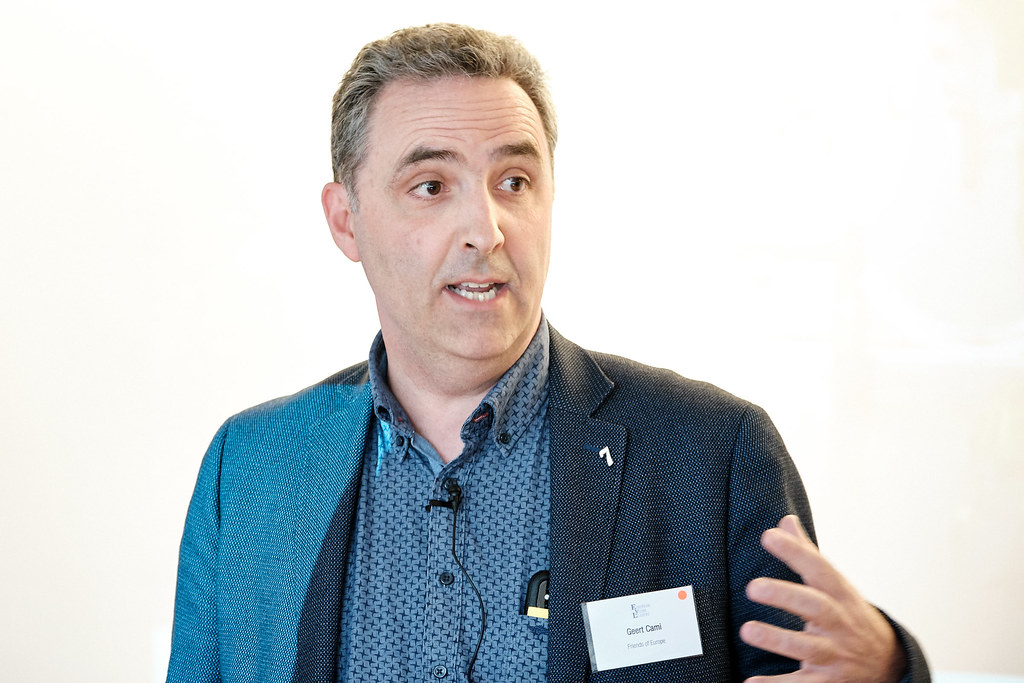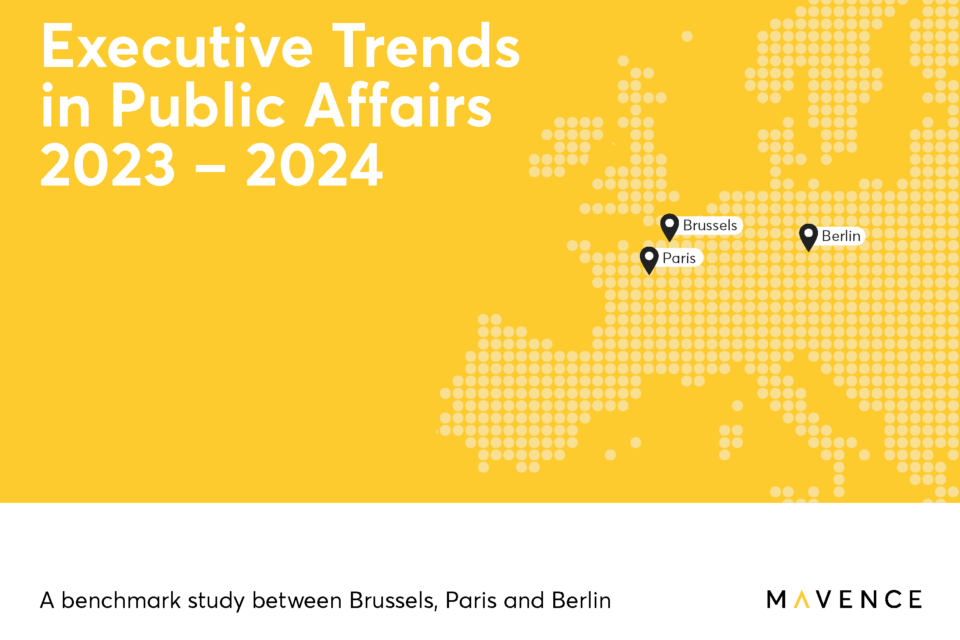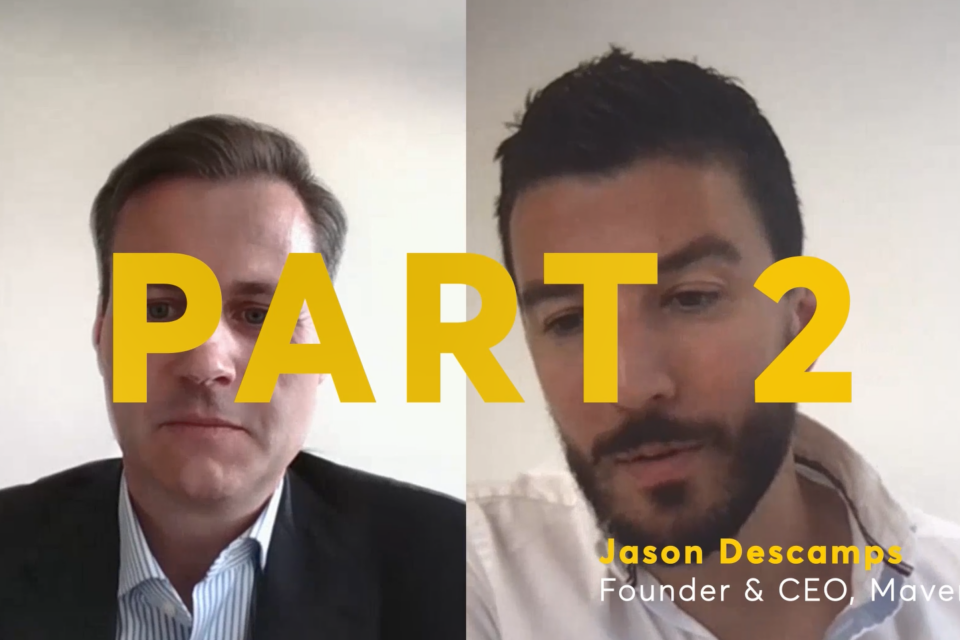We speak to Geert Cami, Co-Founder and Managing Director of leading Brussels think-tank Friends of Europe. He talks about its creation, how the think-tank environment in Brussels has evolved and the power of compromise.
When Geert Cami co-founded Friends of Europe in 1999, it was one of the first real think tanks to operate in Brussels. It quickly rose to become one of the most prestigious and influential. Geert shares about his experience as its fearless leader in this interview.
How has the think-tank scene evolved in Brussels over the years?
You’ll now find many more think tanks in Brussels than when we founded Friends of Europe. Many of them are national think-tanks that have opened offices here – and most of them have become more visible and better at communicating.
Prior to founding Friends of Europe, you worked for the European Commission. What prompted you to change course?
It wasn’t a one-man job – and I must pay tribute to Giles Merritt, with whom I founded Friends of Europe. He’s a highly respected EU analyst and a former journalist with the Financial Times. Indeed, many of us have journalism or communications in our DNA, working alongside those people who work on the content of our programmes – and that is what differentiates us from other think-tanks.
We decided to create a different kind of think-tank. Rather than an army of academics, we would build its expertise around experienced people – individuals that have shown leadership in a particular area and have used their skillset to advance the discussion. Basically, that’s how it all started.
Would you say you were pursuing an American think-tank model?
A: We founded Friends of Europe with dual objectives. First, to create livelier and more provocative discussions on the challenges facing Europe and its citizens. Second, to reach a wider audience. So, we were, indeed, inspired by US think-tanks: highly visible, very lively, not shy to ask difficult questions and have “unusual suspects” debate against each other.
Historically, the main difference between think-tanks in Europe and the US – where the concept was created – is that in the US they have larger endowments and are much better funded than here.
Also, US think-tanks often act as a waiting room for political leadership. In a bipartisan system, the Party not in the White House usually puts its top talents in think-tanks; when the situation changes they take positions in the next administration.
15 years ago, too many European think-tanks, by comparison, focused only on producing academic work, never asking the question, “is anybody really paying attention?” – which is another reason why we created Friends of Europe.
What is the role of a think-tank in today’s world?
A: It boils down to one key word: trust. If we look at how people vote today, at the rise of populism, this trust is gone. We have a role in recreating the sense of trust in institutions and in leadership. Our role as think-tanks is to clarify issues and make debates objective: we need to be fact-based and use our skills to reach and better inform a wider audience.
What are the key challenges that think-tanks face today?
Again, it’s about trust and relevance. We must keep proving that we bring value to the policy debate by being proactive. Brussels has been reactive for too long, commenting on policy processes and proposals but failing to consider what’s looming beyond the horizon. Think-tanks need to focus both on the crises today and on the longer-term trends.
What motivates you most to get up in the morning?
I’m an optimist, despite fake news and deception. What drives me is our role in proving that facts matter; helping society to fight this fantasy of taking decisions that are not based on facts.
We aim to demonstrate that there is a value in compromise. People are worried by globalisation, by changes in the world and society, and that’s normal. We must avoid reinforcing the idea that you can only choose between extreme voices. We must demonstrate that compromise can be good, that life is not as simple as black and white. You need to bring together different opinions, as well as the facts, to make up your own mind about the best solution to a problem.
Who has been your most influential role model?
My biggest role model was my father, without any hesitation. I lost my father three years ago and I considered him to be one of my best friends. He was a secondary school teacher who inspired thousands of people. He was also a social activist and an inspiring personality: always calm and trying to turn challenges into opportunities. He really was a major influence on me.
Working in a think-tank must be fulfilling and exciting. What are the most important skills for good think-tank researchers?
The obvious answer is that you need to know what you are talking about. You also need to be open to a holistic view: I often find that people remain locked in their own speciality, but we can’t afford that anymore. You need to be a specialist but it’s also essential to be able to link your own area of expertise with others and to exchange ideas with people from other backgrounds or with other visions.
A good think-tank also needs to always be self-critical, in terms of its own relevance. Before we decide on doing something we ask ourselves, “can we make a difference, or is it just a duplication of what others are doing?”
So, a good think-tanker also needs a ‘political nose’ to sense where opportunities lie to make your work relevant.
Do you see yourself driving the political agenda to a certain degree?
If you want to be relevant you try to put certain issues on the agenda – but unfortunately, it’s more often current affairs that decide the hot issues.
When you recruit, do you look for people with any specific background?
It depends on the function of course, but we look for a combination of two skills: first, to be someone with knowledge, so that we can talk with credibility and be leaders; second, to be someone who will roll up their sleeves and be determined to make a difference.
What values shape the philosophy of Friends of Europe? As a leader, how do you ensure your teams embrace them?
We believe in integrity and in the power of confronting ideas and opinions. So, of course you have to make sure everyone gets the same chance to advance their ideas.
We have organised a few working groups in recent years composed of people with opposing views, where we managed to come out with a strong report. For example, on climate change, energy and competitiveness, and on health.
What are you reading that you’d recommend to our community?
“Slippery Slope” by Giles Merritt. It’s highly accessible and based on a large number of interviews with different actors, and gives a snapshot of the challenges facing the EU. On a non-EU level, I recently read the story of the German goalkeeper, Robert Enke, who killed himself in 2009. That story is really touching: you have everything you want and yet…
Does that mean you’re a football fan?
I am, and what I like about it is that it brings people together. It’s a mirror of the society. We have many problems, but football is one of those rare environments where you see people from all ages and social backgrounds supporting their team.
What would people be surprised to learn about you?
I live in a famous carnival city: Aalst. We are known for making fun of everything and everybody and I think I have inherited that capacity to not take things, or yourself, too seriously. I also believe humour is very powerful and important in bringing people together to try to solve issues, including at the negotiating table. We have also experimented in doing things in a lighter, more humorous way.
Ultimately, we want to motivate more citizens to take an interest in today’s issues, to inform themselves – and to vote, which is I believe essential in today’s world.


